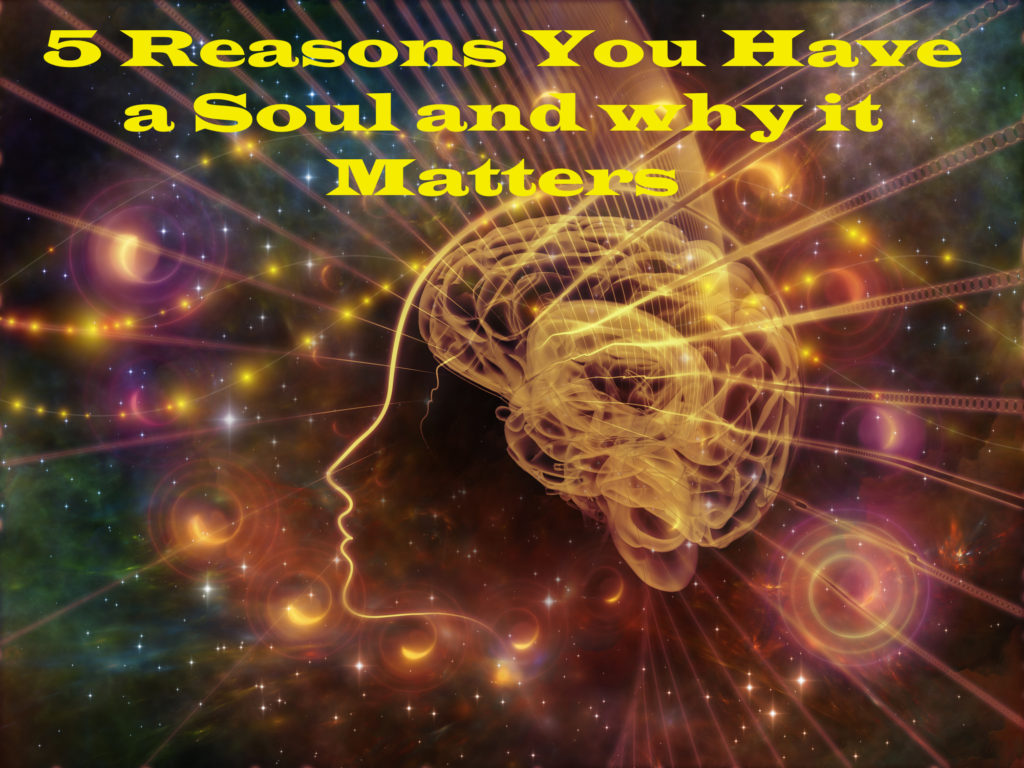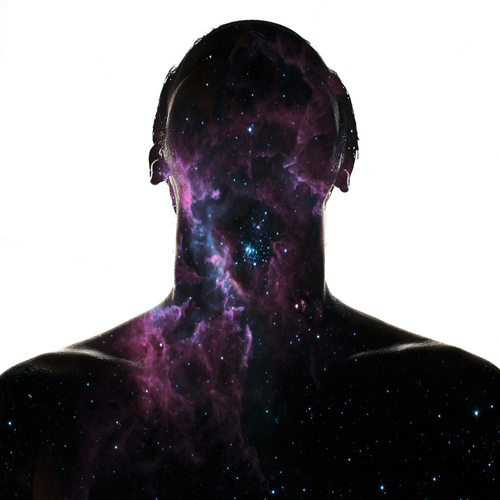When my son died, I struggled thinking “God and Christianity–is this for real? Is this all a cosmic joke?” I needed to have real evidence for my beliefs, otherwise, they are empty and emotional poetry! I looked for hard evidence, and what I found was just amazing. “The hope of another life,” wrote Will Durant “gives us the courage to meet our own death, and to bear with the death of our loved ones; we are twice armed if we fight with faith.”
Francis Crick in his book, The Astonishing Hypothesis: The Scientific Search for the Soul claims that that the astonishing hypothesis is that there is no soul. We never had do not have and will never have a soul.” Is he right? I contend and argue that he is dead wrong!
THIS ARTICLE IS ALSO AVAILABLE IN PODCAST MODE HERE>
After looking and rediscovering the evidence for the soul, my faith grew stronger and unstoppable (well at least for now! 🙂
It is my conviction that when one does look at the failed explanations of naturalism for the soul, will, after examining the evidence concede that there is indeed a soul. This is not a “soul-in-the-gaps” fallacy. If it was, I would have just defaulted to the soul to fill in the lack of explanation. But I will not do that. I will provide positive evidence if you will give me a hearing.
Please note that the soul, if it exists, would be immaterial because its events are immaterial (thoughts, desires, intentions, images) it cannot be proven using material things like CAT scans or MRI scans. So the criteria for “proving” it would be different than the criteria for proving a microwave oven exists.
Now in discussing the soul, there are many views (materialism, scientism, emergent properties, property dualism) Substance dualism is the view that most people who ever lived have. It is that there are two substances that makeup what it means to be human: the spiritual and the physical.
There are five reasons for believing we are or have souls. This is not physical proof; it is, rational proof, or logical evidence to believe in souls. They are, 1) quaila, 2) the unity of consciousness, 3) intentionality, 4) freewill and 5)personal identity
1) Personal experience, or quaila.
You are now experiencing this page in your vision. You have conscious experiences that are very authentic; in fact, they are more real than inferred things like the solidity of the moon or historical questions of who was the first president of the USA. For example, you know beyond a shadow of a doubt that you are experiencing the sentences you are reading right now. That is what cognitive scientists call qualia.
Philosopher Thomas Nagel called it, “The View From Nowhere” because it is nowhere to be found in our physical brains and is subjective, yet very undeniably genuine. Qualia do would not register on any physical system in the known world (although the results of you reading this paper, such as your neurons firing, would). Consciousness is not a material thing; it belongs to the immaterial category. Frank Jackson has proposed the famous[1] knowledge argument that would be helpful here. But I do not have the space to pursue it. See the footnotes.
2) Our unity of consciousness, or unified experience.
This unity we have is something that is beyond, in principle, a physical description.
When I type this paper, eat frozen grapes, see my wife walk by and notice the green color of our walls, hear the traffic outside all at the same time, I am having a unified experience. I would add that this is not just restricted across states of perception with phenomenal contents but also for beliefs and memories of one’s self as well. Our unity of consciousness is also referred to as the binding problem.
This unity of consciousness would apply to all animals, but the awareness of that unity would apply to persons alone. As far as we know, although animals have an awareness of the world around them, and sentience, they do not have higher-order thoughts or HOTS. They do not report on their psychological inner lives. Another way of putting this is that animals are conscious, they can think, but persons are self-conscious, that is, we can think about what we have been thinking about. Human persons alone, in addition to having this unified consciousness, are also aware of this unity. This unity is a harmony that persons experience concurrently and have privileged information about. No physical system alone can do this because a physical system is divided into parts. What physical part of you the unified center that reflects upon itself? The mind? But the mind is not physical. It is not physical because it has properties that are not extended into space such as thoughts, sensations, experiences and the ability to reflect upon itself. That is what Descartes called the soul.
Francis Crick (who was a self-proclaimed atheist) wrote regarding the notion of the self and our visual experience of the world that,
“Although there are many different visual regions [in the brain], each of which analyses visual input in different ways, so far we can locate no single region in which the neural activity corresponds exactly to the vivid picture of the world we see in front of our eyes. . . In short, we can see how the brain takes the picture apart, but we do not yet understand how it puts it together. . . . Alternatively, some view closer to the religious one [the soul] may become more plausible.”
This is ironic because the point of Crick’s book was to show that there is no soul.
However, William Hasker, Professor of the Division of Humanities and Bible at Huntington College, has articulated it well:
“A person’s being aware of a complex fact does not consist of parts of the person being aware of parts of the fact, nor can a complex state of consciousness exist distributed among the parts of a complex object.”The soul is that single undivided unity.
The soul is that single undivided unity.
3) Your undisputable free choices.
If we are nothing but greatly evolved organisms, then how can we make genuinely free choices? In the classic paper by Norman Malcolm “The Conceivability of Mechanism,” Malcolm argues that if we are a mechanism, that is, nothing but a biological organism, then our every move and decision is made based on prior causal factors. All organisms with neurological (neurophysiological) systems including human beings would be determined. If naturalism is true then we should be able to produce a theory that is adequate to explain all actions of human bodies unless acted on by an outside force. It is a theory that would explain and predict the movements that occur when a person signals a taxi, plays chess, writes an essay, or walks to the store. If naturalism is true then only what our physical neurons do is what matters in the choices we make. Thus, such things as a person’s desires, aims, goals etc, do not matter at all in the decision making process. They are all illusions.
However, we know from experience that we are free to do what we choose when we reflect on our choices, (requiring higher order thinking) thus we must be more than just a biological organism. You are free to stop reading this article if you choose to do so.
Thus, mechanism or naturalism cannot account for this if you are just a physical system. A soul would make sense of your decision because, although it would be affected by your biology, environment, social class, etc, the ultimate choice is made with or in your non-material part, your soul.
4) Intentionality
Intentionality is aboutness or ofness that is, you think about things. Your thoughts are directed towards the content of an object which only conscious beings can do. Alvin Plantinga, a former professor at the University of Notre Dame argued for the non-physical nature of intentionality or mental content:
“We can examine this neuronal event as carefully as we please; we can measure the number of neurons it contains, their connections, their rates of fire, the strength of the electronic impulses involved, the potential across the synapses with as much precision as you could possibly desire; we can consider its electro-chemical, neurophysiological properties in the most exquisite detail; but nowhere, here, will we find so much as a hint of content.” A. Plantinga, “Materialism and Christian Belief,” in Persons Divine and Human ed. P. Van inwagen and D. Zimmerman (Oxford University Press, 2007), 109.
Furthermore, you cannot have thinking without a thinker. Thinking or intentional thoughts cannot be about things unless there is meaning in these thoughts. These thoughts are not physical. They are not physical because they do not have weight, volume, color or mass, they are also private and first person. No one has access to this thought but the thinker. The one thinking them must have at least one part of his nature to be non-physical. Descartes was right, I am a thing that thinks or “sum res cogitans” and this thing that thinks must have a non-physical aspect that we call the soul.
5) Personal Numeric Identity
According to the New York Times, Manuel Gonzales, a New Jersey truck driver was convicted of second-degree murder on September 30, 1999 in a two-decade-old slaying of an off-duty police officer, Ronald Stapleton, in a parking lot outside a Sheepshead Bay bar on Dec. 18, 1977. How is it we can convict Mr. Gonzales of a crime he committed over 30 years ago? On what grounds he is the “same person” when basically all if not most of his biological body is completely different now than the one in 1977? Mr. Gonzales can argue that his psychological nature also changed, he is a “reformed man now.” There must be something that keeps one the same person across time and space. What is that? If there is nothing, as the Buddhist argues, then how can we still convict him, the same person, of these crimes? If we have an inner soul, we are in the sense the same numerical person, even if our bodies and psychological states have dramatically changed.
There is a continuity of psychological existence across time. Because we have a soul, it is most reasonable to convict or to give Mr.Gonzales another trial because he was the same person, in one sense, in 1977 that he is now.
Although Descartes (Plato, too) claimed that the connection of the body and the person is more than that of a mere pilot in a ship, his view seems to reach just such a conclusion: the person is the mind or soul, which is a pilot in a ship. Moreover, if a person only resides in a body (even if it is connected to her), then when the body breaks down the person should not be affected (although her ability to express herself may be affected). But the evidence from medical science conflicts with this notion.
The person is a psychosomatic unity. Both body AND soul.
For example, a person whose body suffers from a severe neurological disorder, such as Down syndrome, resulting in manifold disabilities, might not be able to think or understand complex thoughts. Traumatic brain injuries (TBI) can even contribute to drastic changes in personality—that is, in the development of the person—according to the Brain Injury Association of America.
There are many cases where human persons are not able to fully express their personhood, such as, but not limited to, people with severe mental diseases that damage the cerebral cortex of the brain (especially, the frontal lobes) and people in comas and persistent vegetative states (PVS)—and in such cases, this psychosomatic unity becomes very evident.
 One real-life example is the famous Phineas Gage (right), a documented case reported in 1848.
One real-life example is the famous Phineas Gage (right), a documented case reported in 1848.
Gage was a railroad construction foreman, who suffered a critical brain injury on the job that should have killed any normal man. However, Gage survived. What happened is this:
During the construction of the Rutland & Burlington Railroad, an accidental explosion occurred which pushed a rod (reported to be about three feet long and one-and-a-quarter inches in diameter) through Gage’s skull. The rod entered through his left cheek and exited out the top of his skull (near the intersection of the sagittal and coronal sutures). Against all expectation, Gage survived. However, his entire personality changed after the event, causing his friends say “it was no longer Gage.” Phineas Gage’s skull and life mask have been preserved and are held today at the Harvard Medical School’s Warren Anatomical Museum in Boston.
It is reported that with time Gage recovered from some of the personality changes caused by the accident. However, for a time, at least, this man’s entire inner life was drastically altered by massive neurological damage to his brain. These and other examples make me doubt the old Cartesian system.
In conclusion, we are born, live, drink, eat, get married, and die with our flesh and blood body. The immaterialists are wrong in assuming that we are only a mental substance, and equally wrong are the materialistic naturalists who think we are only material substances. We need a balanced view.
The soul and body are both critical to the nature of what it means to be human,
let alone a human person.
Now what is the soul? The great philosopher Immanuel Kant thought that the soul is “self-existent, that is, existent independently of and in complete distinction from the things which are its objects.” And the soul is as Rene Descartes said, “a thing that doubts, understands, [conceives], affirms, denies. . . , refuses; that imagines also, and perceives.” And Pascal said that “The immortality of the soul is a matter which is of so great consequence to us and which touches us so profoundly that we must have lost all feeling to be indifferent about it.” See this post for more.
—————–
[1] N. Malcolm, “The Conceivability of Mechanism,” Philosophical Review 77 (1968): 67-58.
[2] I accept a compatibilist position on free will because of the tension in Scripture of human responsibility and divine providence such as but not limited to Phil 2:12-13, “So then, my beloved, just as you have always obeyed, not as in my presence only, but now much more in my absence, work out your salvation with fear and trembling; for it is God who is at work in you, both to will and to work for His good pleasure” (NASB). A compatibilist is defined as “a human action is `free’ if the following requirements are met (1) the immediate cause of the action is a desire, wish, or intention internal to the agent; (2) there is no external event or circumstance that compels the action to be performed; and (3) the agent could have acted differently, if she had chosen to [based on her desires]. If these criteria are satisfied, the action comes, as we might say, `from within’; it cannot rightly be said that the agent is forced to perform it. This is `compatibilist’ free will, because it holds that free will is compatible with deterministic causation, so long as the three conditions are satisfied.” Reason & Religious Belief ed. M. Peterson, W. Hasker, B. Reichenbach and D. Basinger 5th edition. (New York NY: Oxford University Press, 2003) 158.
3 See Revonsuo, A. 1999. “Binding and the phenomenal unity of consciousness,” Consciousness and Cognition 8: 173-185. T. Bayne and D. J. Chalmers, “What is the Unity of Consciousness?” in A. Cleeremans ed., The Unity of Consciousness: Binding, Integration, Dissociation (Oxford: Oxford, 2003); also available at http://consc.net/papers/unity.html, last accessed 21 August 2007. S. Shoemaker writes “Perfect unity of consciousness, then, would consist of a unified representation of the world accompanied by a unified representation of that representation,” Shoemaker, S. 1996 “Unity of Consciousness and Consciousness of Unity,” The First-Person Perspective and Other Essays (Cambridge: Cambridge University Press, 1996); quoted from T. Bayne, “Self-consciousness and the Unity of Consciousness,” forthcoming in The Monist 2004; available at http://www.phil.mq.edu.au/staff/tbayne/self_consciousness.pdf ; last accessed 21 August, 2007.
4 F. Crick, The Astonishing Hypothesis: The Scientific Search for the Soul (New York: Touchstone, 1995), 159, 262.
[5 W. Hasker, “On Behalf of Emergent Dualism,” in In Search of the Soul eds. J. B. Green and S. L. Palmer (Downers Grove, InterVarsity, 2005), 92.
6 Jackson, Frank (1982). “Epiphenomenal Qualia”. Philosophical Quarterly (32): 127–136. And Jackson, Frank (1986). “What Mary Didn’t Know”. Journal of Philosophy (83): 291–295.
What do you think?





Pingback: 5 Proofs for the Soul | A disciple's study
Hello Khaldoun,
Great post.
On the other hand, if the Soul exists and interfaces with the physical body then it has to be partly physical to be able to interact with the brain or the body in general. Therefore the Soul would lose its pure metaphysical nature.
However if one assumes that the entire physical reality can be summarised as information (as all the possible states of fermions, quarks or other physical material), then the soul of a physical entity could be defined as the information accrued by this physical entity.
One could distinguish different types of physical entities:-
1) Not alive: accrued information is the mere history of physical change of the entity. Therefore the soul as a independent idea does not exist.
2) Alive, not self conscious: accrued information is the history of physical change and the active changes and/or actions of the entity. The soul is a summary of actions without any proof of conscious decisions.
3) Alive, self conscious, accrued information is as above plus de self conscious decisions taken by the physical entity (this would include moral decisions, self reflections and thoughts about the non-physical world). Humans (and possibly in the future Artificial Intelligence, other self conscious beings in the universe and maybe some higher animals). The aggregate of self conscious information generated by such beings could be defined as the Soul.
The Soul defined as such does not contradicts the five proofs referred to in your post
1) It summarises and aggregates the personal experience (qualia) of an individual
2) It summarises and aggregates the consciousness of an individual independently from the physical body of such individual because as soon as the information is generated by the physical body it is stored in the physical reality
3) Whether individuals have truly a free will religions are also struggling with to a certain extend. Each individual that is self conscious has the power to take responsible decisions. I would not dare to pose that such decisions are 100% free but certainly more than 0% free.
4) Thoughts are maintain as information generated by a physical being
5) The aggregates of thoughts, decisions etc. are maintained as information and the generating physical entity can be held accountable for them because it was generated by a physical entity governed by (substantially taking a small number of genetic mods into account) the same genes (or another form of physical living information system defining the individual)
Concluding on the religions front. If a God exists then God would be able to access the aggregate of information generated by a conscious being. If this information contains elements of recognition of the nature of God and decision taken according to the nature of God then the non-physical information could be recognised and possible judged by such God. Ultimately if such God exist then God could “resurrect” the essence of such conscious being.
Therefore, the Soul as a non-physical entity does not necessarily have to exists, whilst still meeting the description of the the five “proofs” you refer to.
Pingback: 5 Proofs for the Soul | Logically Faithful-Khaldoun Sweis PhD
Pingback: 2.08: 5 Proofs of the Soul Podcast | Logically Faithful-Khaldoun Sweis